#Jane Fairfax
Note
Ranking Jane Austen heroines/women on how good of a mother they’d be?
As with the men, I think they would all be good mothers, though in different ways.
Elizabeth Bennet: Soccer mom, she wasn't given the opportunity to have a structured education herself, it will be different for her kids. She's hiring the best governess she can find (after Darcy does a full background check), she's encouraging her kids to do extracurriculars, they will speak six languages that she doesn't understand or else! Has a minor panic attack if she says anything that sounds even remotely like something either of her parents would say.
Jane Bennet: Gentle mom, she cannot imagine punishing her children, she just has a killer disappointed face (she is unaware of this). Encourages her children to always try to understand both sides of the story. Will eventually fall for a lie one of her children tells and be devastated when she figures out the truth.
Anne Elliot: Perfect mother, there is indeed no one so proper, so capable as Anne. She has also watched her sister do everything wrong and she knows exactly how to do it right.
Emma Woodhouse: Scatterbrained mom, makes a resolution to teach her daughter fancy work but then gets distracted and the sampler is left half finished. Promised to read with her son but they only make it halfway through the novel. Good thing she hired an excellent "Miss Taylor" to pick up the slack! And despite her occasional screw-ups, her kids love her to pieces. They just better be on guard when they hit 18 and she starts trying to marry them off.
Marianne Dashwood: Crunchy mom, or whatever the Regency period equivalent would be. She wants her kids to feel the dead leaves between their toes, she encourages them to write poetry and play moving ballads. Otherwise, a lot like her own mother (they have very similar personalities)
Elinor Dashwood: I-Say-I-Love-You-With-Food Mom, she may not be exactly emotionally available, but she orders her daughter's favourite meal when she's sad and there are tiny hearts in the stiches of her son's clothes. She makes sure her kids are provided for, educated, and healthy. When she asks if they are hungry, they know she's saying, "I love you."
Fanny Price: Nurturing mom, she will be everything for those children that Edmund and William were to her, but nothing like Sir Thomas, Lady Bertram, Mrs. Norris or her own parents. She has a good deal of experience from nursing her own siblings so it's a pretty smooth beginning.
Catherine Morland: Overconfident mom, Catherine has been there and done that, she has six younger brothers and sisters after all, she's READY! This will be easy! All you have to do is make sure the baby is fed, washed, changed, and napped... oh... it's a lot harder to do this when you have only slept for 2.5 hours last night... (I know she would have servants, but still, being a new mother is tough!)
Bonus: Jane Fairfax tries to keep Frank from spoiling the kids, but it is literally impossible. He keeps buying them huge presents and then she would be the bad guy for saying no. Also, she knows that Frank lost their child in Kensington Gardens (twice), that's why she always insists he take a footman now.
Bonus bonus: Harriet Smith has a special box where she keeps all the 'treasures' her kids collect. It is her most precious possession.
#question response#jane austen#austen moms#emma#emma woodhouse#pride and prejudice#elizabeth bennet#jane bennet#sense and sensibility#marianne dashwood#elinor dashwood#persuasion#anne elliot#northanger abbey#catherine morland#mansfield park#fanny price#jane fairfax#harriet smith
789 notes
·
View notes
Text

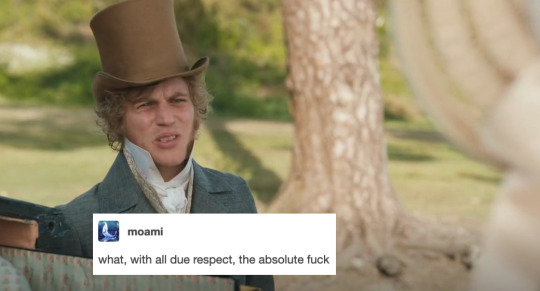
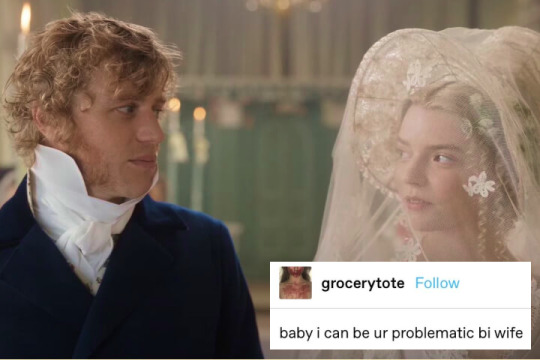
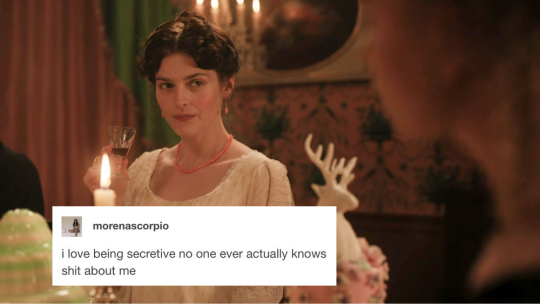
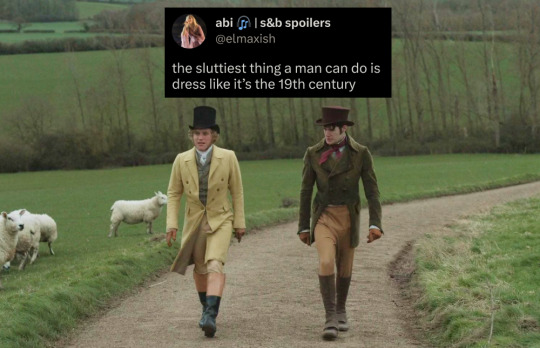


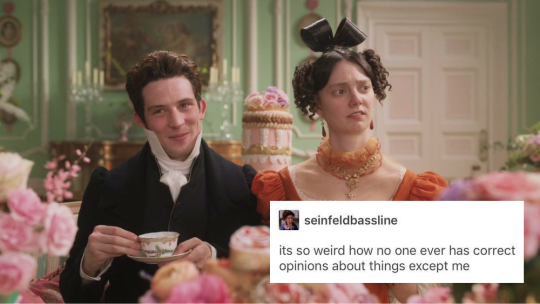
Emma. 2020 text posts
More: Sense and Sensibility 1995 text posts | Northanger Abbey 2007 text posts
#emma memes#emma#jane austen memes#jane austen#english lit memes#emma 2020#text posts#emma woodhouse#mr knightley#jane fairfax#mrs elton#harriet smith#robert martin#anya taylor joy#johnny flynn#my stuff
598 notes
·
View notes
Photo
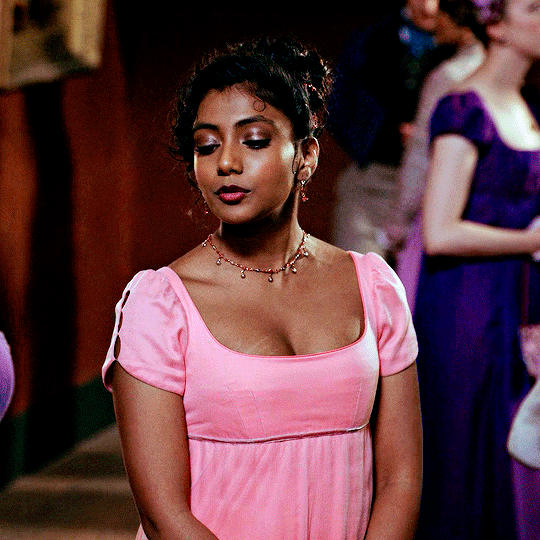
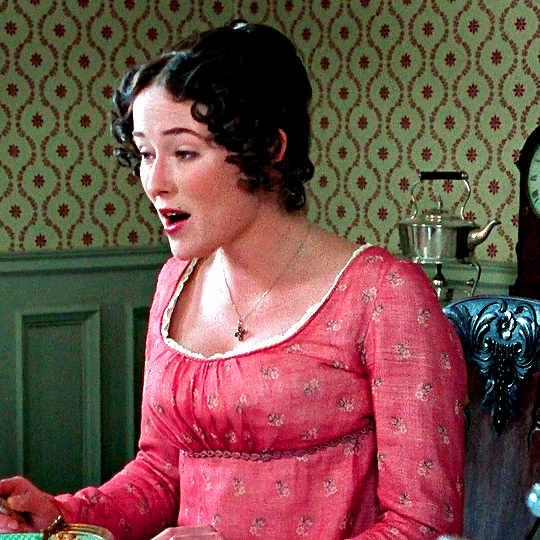

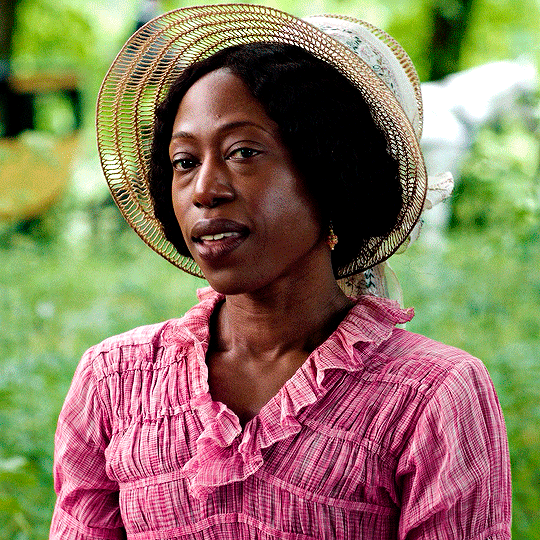

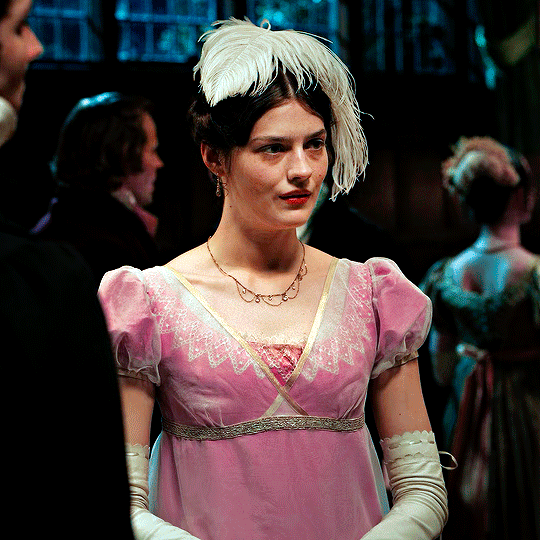
REGENCY LADIES + pink
#bridgertonedit#bridgerton#pride and prejudice#pride and prejudice 1995#sanditon#sanditonedit#persuasion#persuasion 2022#persuasionedit#mr malcolm's list#mr malcolms list#emma 2022#emmaedit#edwina sharma#elizabeth bennet#georgiana lambe#lady russell#julia thistlewaite#jane fairfax#charithra chandran#jennifer ehle#crystal clarke#nikki amuka-bird#zawe ashton#amber anderson#perioddramaedit#perioddramasource#weloveperioddrama#usercharithra#mine
1K notes
·
View notes
Text
“Emma and Harriet” “Harriet and Emma” what about THEM
198 notes
·
View notes
Text

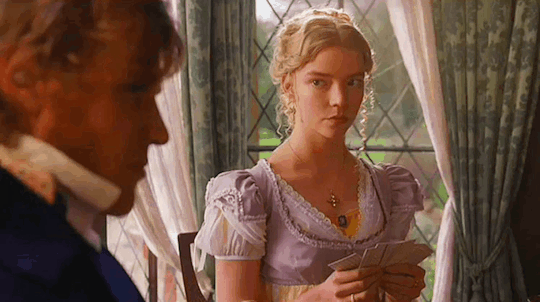
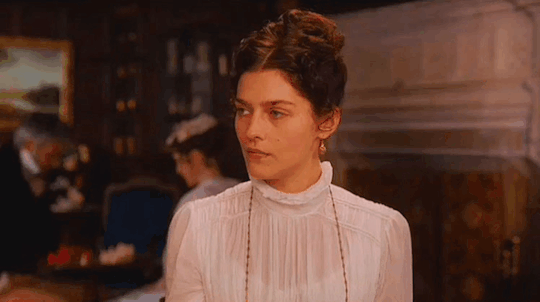
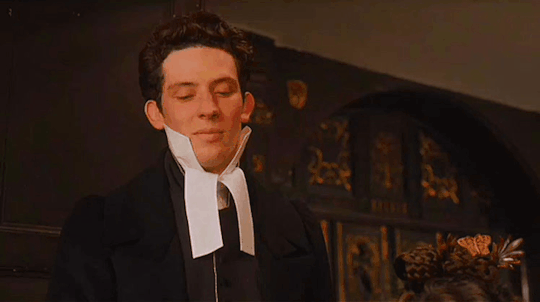


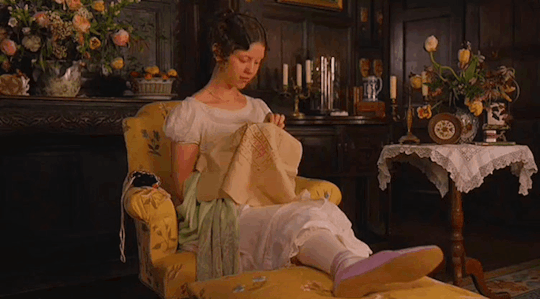
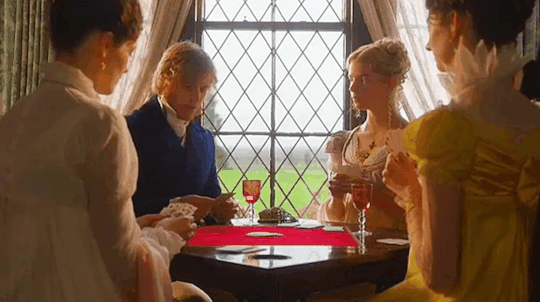
EMMA (2020)
dir. autumn de wilde
#emma 2020#jane austen#costume drama#period drama#perioddramagif#perioddramaedit#emma woodhouse#mr knightley#harriet smith#mr elton#mrs elton#jane fairfax#anya taylor joy#johnny flynn#mia goth#josh o'connor#tanya reynolds#amber anderson#my gifs#mine
65 notes
·
View notes
Text
i’ve always appreciated the way emma NEVER spoke badly of jane fairfax. like she could’ve said a lot of shit about her to frank, and yet she always defended not just her looks, but her personality. and she doesn’t do this because of etiquette, because we’ve all seen accomplished ladies in JA novels, like miss bingley or the bertram sisters, talk shit behind someone’s back. rich people could get away with that bc they were rich. however, emma truly believes all of those good things about jane! (that’s part of the reason she’s jealous of her!) it’s actually one of my favorite things about emma’s character and of the signs that beneath her arrogance and selfishness, she is actually a good person.
314 notes
·
View notes
Photo
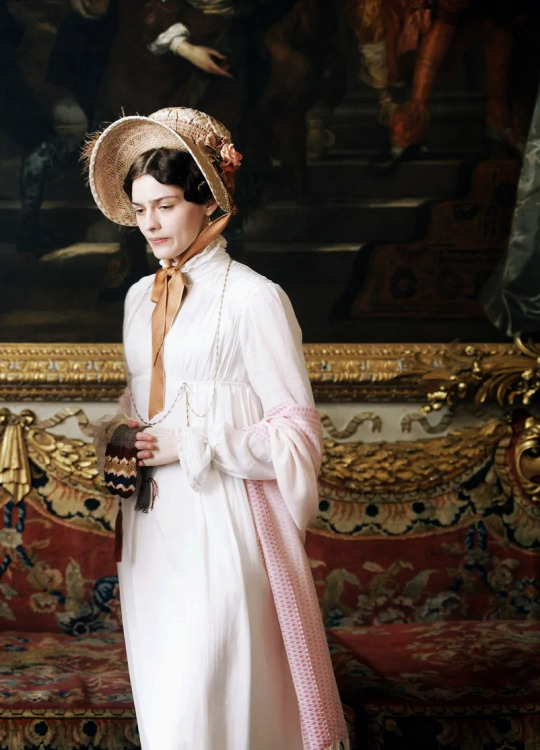
Amber Anderson as Jane Fairfax in Emma (Film, 2020).
84 notes
·
View notes
Text
A couple of days ago, I encountered a particularly terrible Austen take, which touched on P&P but was more focused on Emma. It’s related to something I see pretty often in fandom and in more pop culture-style takes, but much less often in academia, so I wanted to talk about it here instead of in an academic format.
The context: in Emma, there’s a scene where Jane Fairfax talks about her plan to go into work as a governess by referring to offices that trade in the sale of human intellect (i.e., the governesses’s intellects). Mrs Elton misunderstands this as “a fling at the slave-trade” and rushes to say that her brother-in-law (whom she constantly praises) is pro-abolition. Jane explains that she was talking about the governess trade and the conversation moves on.
The take: wow, Austen is saying abolition is bad! Emma is pro-slavery! Austen was pro-slavery! That’s where Bingley’s and Mr Gardiner’s money is really coming from!
To be clear, this isn’t a terrible “interpretation” (for lack of a better word) because Austen was an unproblematic genius who could do no wrong. I actually do think the interchange in Emma is deeply problematic, but in a more complicated and less clickbait-y way that I’ll explain.
The logic of the interpretation, as far as I can tell, is that Mrs Elton is an awful and fairly stupid person, so by associating her with abolition, Austen is criticizing abolitionists. This is basically the same logic used by the people who argue that Lady Catherine’s opposition to entailments means that P&P is actually pro-entailment (also a truly asinine reading).
It’s pretty evident in the P&P case that Lady Catherine opposes entailing estates away from women because she personally (and her daughter) would lose power, property, and wealth under entailment, and moreover, that she’s using the occasion to gloat about the superiority of her and Anne’s situation. The point is less to tell us about entailment discourse and more to tell us about Lady Catherine.
Similarly, in Emma, Mrs Elton’s rush to insist on Mr Suckling’s pro-abolition politics tells us less about abolition and more about Mrs Elton. She jumps to an incorrect assumption (that Jane was talking about literal slavery), hurries to defend a brother-in-law whom nobody else was talking about, then just keeps going without really listening to what Jane is saying or showing any understanding of her character. So we see that she’s not particularly bright, that she doesn’t listen to the people she’s allegedly trying to help, that her confidence is brittle and defensive, and that she’s generally obnoxious.
It’s possible to see that as all that’s really going on here. In that case, it would be pretty bad, IMO—referencing the actual, ongoing horrors of the slave trade simply to illustrate how unpleasant Mrs Elton is towards other white English people. But that’s still far short of “abolition is bad, actually.”
It’s possible to go further. So Mrs Elton is brittle and defensive, at least on this point. Maybe that’s just how she is. But you could also read her defensiveness as pretty suspect. She leaps to the assumption that the quiet girl she’s trying to mentor is attacking the slave-trade out of nowhere and that her own family’s position on the subject could be in some doubt. It may be that there are actually legitimate reasons why her family’s position could be in doubt.
Mrs Elton’s father and the source of her ten thousand pounds was a Mr Hawkins of Bristol, and this is what we hear of him:
merchant, of course, he must be called; but, as the whole of the profits of his mercantile life appeared so very moderate, it was not unfair to guess the dignity of his line of trade had been very moderate also
Despite Mrs Elton’s time in Bath, “Bristol was her home, the very heart of Bristol” because she was living with an uncle there who is some kind of lawyer and because her sister (the one married to the glorious Mr Suckling) lives near Bristol as well. So Mrs Elton’s entire family at this point is closely tied to Bristol, which was the lead British slaving port in the mid-eighteenth century and still very, very heavily and lucratively involved in it later on.
It is therefore extremely possible that her own fortune, and/or Mr Suckling’s, derives pretty directly from the slave trade in some fashion or another. Now, it’s worth bearing in mind that Britain’s economy was deeply tied up in the slave trade generally and there was no truly unproblematic way to be prosperous at the time, even without immediate involvement in the trade. But a lot of people would distinguish between the ways in which this affected everyone with money and actually owing your fortune directly to slavery.
So this leads to more possible interpretations, like:
1) Mrs Elton’s father was involved in the slave trade in some capacity and her own fortune derives from it. Even though Jane Fairfax says she’s not talking about the sale of human flesh, her wording is vague enough that it’s the immediate association Mrs Elton makes. She rushes to use Mr Suckling’s pro-abolition sympathies, such as they are, to deflect attention.
2) Mr Suckling is involved in the slave trade in some way. Mrs Elton ordinarily doesn’t think or care about this, but Jane’s remark brings it to her mind. She’s constitutionally incapable of keeping her mouth shut, so she babbles out some nonsense about him being friendly to abolition, with “rather” doing a lot of heavy lifting.
There are other possibilities (or some combination of these) as well. Regardless, Mrs Elton’s defensiveness about the slave trade + the emphasis on her origins in Bristol seem fairly suggestive. At worst, IMO, her shallow and self-serving use of abolition to prop herself up as a moral authority illustrates her character without indicating that abolition itself is bad, in that “Lady Catherine is right about entailment, in the most Lady Catherine way possible” sense.
I think Jane Fairfax’s explanatory response to Mrs Elton actually tells us a lot more about Austen’s perspective, given how sympathetic the overall narrative is to her and her situation, and that we know that Austen had strong feelings with respect to governesses. Additionally, I thought it quite strange that The Take did not address Jane’s response at all, given that it falls directly into a device that was unfortunately common among white British women opposed to slavery.
Jane’s response is essentially this: a) she was talking about the governess trade, not the slave trade, b) that the people involved in the trade of governesses are not anywhere near as morally reprehensible as those who carry on the slave trade, but c) despite this, she doesn’t know whether the miseries of slaves or of governesses are worse.
Obviously, C is factually and morally wrong. You don’t have to understate the misfortunes and abuses of British governesses to understand that literal chattel slavery was on an entirely different level of horror. But this use of slavery as a rhetorical prop for discussing the oppression of white British (especially English) women is something that comes up a lot from women whom you’d hope would know better, like Austen here in Emma (and implicitly in MP, where it’s difficult not to link Sir Thomas’s moral failures as a father/uncle to his position as a plantation owner, esp given that it’s called Mansfield Park).
The argument is underpinned by the assumption that slavery is really bad and that reasonable people can agree that slavery is really bad, sure. It makes the reading of this interchange as pro-slavery even more batshit than it already was. But “slavery and the slave trade are very bad” is an exceptionally low bar.
To give an idea of what I’m talking about in a more general sense, you can see a roughly similar rhetorical device in Mary Wollstonecraft’s The Wrongs of Woman:
“Was not the world a vast prison, and women born slaves?”
“He, forsooth, was her master; no slave in the West Indies had one more despotic”
“I yet submitted to the rigid laws that enslave women”
Etc. And Wollstonecraft was unquestionably opposed to actual slavery; in Vindication of the Rights of Men, she describes slavery as an inhuman custom and atrocious insult to humanity, and the slave trade as “a traffic that outrages every suggestion of reason and religion” (she later terms it “the infernal slave trade”).
So you get these women who intellectually understood that slavery was awful, but for whom it seemed so remote that they chiefly engaged with it as a metric of comparison for their own oppression. The rhetoric can sound a bit like, idk, a seven-year-old complaining about how doing chores is like SLAVERY, MOM but it is important to understand that when Wollstonecraft and Austen refer to slavery, they aren’t talking carelessly about the general concept, but deliberately invoking the very real, very specific, ongoing practice of chattel slavery in order to underscore the suffering of white British women.
In the case of Emma, you could argue that this is Jane Fairfax’s perspective but not necessarily Austen’s. There’s no real narrative comment on what she says because Mrs Elton just breezes right past it. But the novel’s treatment of Jane Fairfax does not incline me to think that the purpose of the comparison is to highlight the flaws in her thinking.
But the incredibly simplistic “Mrs Elton’s brother-in-law is allegedly rather friendly to abolition and therefore Austen is pro-slavery” reading misses all of this. And there is a reason that people rush to that kind of reading without even considering that Jane Fairfax’s response takes “the slave trade is bad” as a given.
I can’t really supply quotes or historical details for the reason that people do this, because it’s more a matter of tone and vibes, so feel free to take it with a grain of salt. But people (especially other white people, in my experience) are not just ready to find signs of slavery apologia in these texts, they seem eager and excited to do so. It’s fun. The idea of a pro-slavery, pro-slave trade Austen does not ruin Emma or P&P or whatever for them. It’s treated as an interesting complication. People jump to the assumption that Elizabeth’s uncle Gardiner, portrayed as a kind, sensible man and living refutation of the Darcy-Fitzwilliam snobbery, is making his living as a tradesman via the slave trade because, wow, wouldn’t that be something?
This is fucking grotesque. Mr Gardiner would be a monstrous human being and the sympathetic portrayal of him would be disgusting. If we interpret “in trade” to universally mean “in the slave trade” then Darcy would have been 100% correct to hold tradesmen in contempt. The novel ending with Darcy coming to love the Gardiners and both Darcy and Elizabeth being eternally grateful to them for enabling their romance would be inexpressibly trivializing. That isn’t interesting, it’s awful.
In fact, while we don’t know the details of Mr Gardiner’s line of trade, we do know that he stores his merchandise in warehouses within sight of his house in Gracechurch Street, London, making it wildly improbable that he’s dealing in slaves. Bingley’s father may or may not have been involved in the slave trade based on the novel (in fact, it’s not 100% certain that Bingley’s father was a tradesman at all, though likely). The name may come from the town of Bingley in Yorkshire. There was also a Thomas Bingley who partnered with the real life Fitzwilliam family, also in Yorkshire, to manufacture pottery between 1778 and 1806 (P&P was written in 1796-7).
The point here isn’t just that these specific instances are actually pretty unlikely candidates. It’s that people are so enthusiastic about jumping to slave trade headcanons(??????) that they ignore what that would really mean, they ignore the actual text, they ignore relevant historical details, for no real end beyond vaguely problematizing Austen.
Look, if you think P&P is propping up a slave trader as an intelligent and kindly man and cool uncle to the heroine and ultimately the hero, you should find the book repugnant. If this is no more than a minor complication for you, why? This isn’t some mildly edgy reading. I’ve seen people who actually commit to this kind of interpretation, and while I think it’s a poor interpretation textually speaking, at least those people understand the gravity of what they’re suggesting. Most people, though, just seem to find the whole thing an entertaining possibility and then put it aside.
I think that’s appalling, to be honest. This kind of reading should not be fun for you, especially if you’re an Austen fan. Frankly, you should either commit to the interpretation—ideally without ignoring the text—or stop this grossly trivializing half-assed shit.
#slavery#anghraine rants#anghraine's meta#austen blogging#austen fanwank#augusta elton#jane fairfax#edward gardiner#charles bingley#mary wollstonecraft#lady catherine de bourgh#long post#emma#jane austen#vindication of the rights of men
448 notes
·
View notes
Text
Mrs Bates’ husband is the former vicar of Highbury; which means that Mrs Bates used to live in the house that Mr Elton now inhabits. Right? Miss Bates and her sister — Jane Fairfax’s mother — grew up there. Jane Fairfax’s mom lived there until her marriage, and then … returned after her husband died? And died in that house, when Jane was three? And Jane herself lived there until she moved in with the Campbells?
So when adult Jane visits Mrs Elton, she’s visiting a house that probably has a lot of un-fun memories. And when Mrs Elton comments to Jane (indirectly) on the house being small, she’s disparaging those memories, and disparaging her mother, and disparaging her grandmother, who was kicked out of that house after her husband died.
I understood that Mrs Elton is constantly demeaning Jane in a way that’s somehow more insulting for being so careless; but I hadn’t picked up on this aspect of it.
(Jane Austen’s World, I thank you.)
Does Mr Knightley hold the living, or Mr Woodhouse? If it’s Mr Woodhouse, I hold Mr Knightley in even higher regard, because he has zero obligation to the Bates women and yet provides for them as he can. I wonder if he feels guilty for not marrying Miss Bates. They must be close in age.
115 notes
·
View notes
Text

Jane fairfax and frank Churchill are my newest otp... I don’t know what happened they just gripped my heart??????
#emma#jane fairfax#frank churchill#jane austen#very vague fashion because it’s late and I don’t have the time to get proper refs Ron#*rn#I was drawing this while finishing the audiobook and WOW what a charming book#the jane Austen sweep of my heart continues
103 notes
·
View notes
Text
Jane Fairfax and Emma Woodhouse have never been friends. Mr. Knightley says it's because Emma is jealous, but she doesn't act jealous. She is quick to praise Jane's accomplishments (when they aren't being bragged about by Miss Bates) and prior to age 8, Jane would not have had a good education. The only time she is somewhat jealous is when she's slightly worried that Knightley might actually like Jane. So why weren't the girls friends then in childhood? We know they grew up together until Jane left to live with the Campbells.
I think Miss Bates is probably a huge reason, Emma cannot stand her and her constant bragging about Jane. Even without jealousy, that would get old very quickly. I mean we all know this lady, who brags about their family member, it's awful. So being friends with Jane is a package deal of seeing Miss Bates far more often.
Secondly, children hate being told to be friends with someone, adults hate it too. Everyone always saying Emma and Jane should be best friends just because they are the same age gives me flashbacks to forced friendships in my own childhood. It rarely works.
Thirdly, this is a two way street and Jane gives nothing. Emma tries, she makes a resolution that it will be better this time and is met with vague, short responses. Now was Emma being somewhat nosey? Yes. But she wants to hear about Weymouth and gets almost nothing. It's natural to talk about a trip! It doesn't even seem like Jane offers another subject:
She was, besides, which was the worst of all, so cold, so cautious! There was no getting at her real opinion. Wrapt up in a cloak of politeness, she seemed determined to hazard nothing. She was disgustingly, was suspiciously reserved.
However, I think the real problem is the social discrepancy between Jane and Emma. We know Jane thinks about it; she brings up her fate frequently. Emma doesn't even need to marry, Jane is to be a governess. She is at the bottom of the gentry and Emma is near the very top. The only time in the novel that Jane comfortably talks to Emma is when her engagement is finally public and secure and she has assumed Emma's level in society.
And that makes sense! Emma is supposed to act like Miss/Mrs. Bates is an equal (roughly) but she sends the women charity food and transportation. It is inherently awkward. It's actually no wonder they've never been friends.
I hope you enjoyed my random, jumbled TedTalk.
#jane austen#emma#jane fairfax#emma woodhouse#mr. knightley#miss bates#friendship is two way#we never see Jane try either#so it's unfair to put all the blame on Emmers
196 notes
·
View notes
Text
Rereading Emma, I’m noticing the degree to which it includes an inversion of Sense and Sensibility: in both of them, a young man is in a secret engagement with a poor woman of whom his family would strongly disapprove, but he appears to have fallen in love with another young lady whom he met after the start of the engagement. In both of them, the woman he is engaged to notices this other attachment.
The contrast is in the utterly different personalities of Jane Fairfax and Emma relative to Lucy Steele and Elinor. Lucy is posessive and feigns friendship with Elinor in order to taunt and watch her, whereas Jane is distant from Emma and would rather break the engagement than have him marry her out of obligation. In personality, the compare-and-contrast effect is heightened by Jane Fairfax and Elinor Dashwood - in opposite positions in the real or supposed triangles - having extremely similar personalities: reserved, polite, self-controlled, valuing morals and good behaviour over personal comfort, and willing to bear patiently with difficulties.
Emma, however, behaves extremely badly by Jane on spreading (if only to Frank) the groundless speculation of a romantic connection between Jane and Jane’s friend’s husband. In addition to this being extremely insulting in particular to a woman like Jane with very high moral standards, Emma (not knowing of the engagement) is under the impression that Jane is going to be a governess, and being suspected of such a thing, if it got spread around by gossip, could be extremely destructive to Jane’s job prospects. Though Emma has no real malice, one could easily see Jane feeling similar about her to how Elinor feels about Lucy.
The other contrast with S&S, of course, is that neither Emma nor Frank is either in love with each other; they just have a lively friendship and enjoy other people shipping them (Frank to conceal his actual engagement; Emma for reasons of vanity and because he’s really the only person who’s both socially eligible and close to her age that she’s ever met in her limited social circle).
The other thing that stands out is that, relative to Austen’s other novels, Emma is much more of a sitcom. Sense and Sensibility, Pride and Prejudice, and Persuasion all have comparatively linear narratives revolving around 1-3 relationships involving the main characters. Emma’s much more episodic, without either Emma or Mr. Knightley realizing their feelings until later in the book, and with very low stakes for both of them through most of the book. Austen’s novels seem to alternate in this way. Northanger Abbey (written first, but not published at the time) satirizes popular melodramatic novels, and so to a lesser degree does Sense & Sensibility. The lighter and wittier Pride & Prejudice is followed by the more serious and sober Mansfield Park, which is clearly in conversation with P&P with the strong parallels and contrasts between the two in characters, relationships, and scenes. Then the lighter and more comedic Emma follows the more serious MP, and is in term followed by the more serious and dramatic Persuasion. This feels deliberate on Austen’s part, and would have given her contemporary readers a good amount of variety.
Emma’s an interesting character in that, while her flaws (mainly her snobbishness towards the Martins and how manipulative she is regarding Harriet’s interactions with them, as well as her bad behaviour to Jane) do bother me more than any of Austen’s other protagonists, she also has virtues I couldn’t imagibe having (her father is so aggravating, and she’s so patient and tactful and good at understanding how to manage his interactions with guests in a way that is comfortable for everyone). Really, despite very different social classes, Mr. Woodhouse and Miss Bates are notably similar in being very kind and well-meaning but also very irritating, and taking a long time to say very little. I feel like that may be an intentional parallel.
My sympathies in the book (apart from Jane Fairfax and Mr. Knightley) are most with Mr. John Knightley, Isabella’s husband, and if I were in the book he’s probably the one I would most enjoy spending time with. I too would get annoyed sometimes with many of these people! I too weary of meaningless small talk and local gossip! I could happily accept a little occasional ill-humour from him in exchange for the rare blessing of thirty minutes’ rational conversation.
8 notes
·
View notes
Text
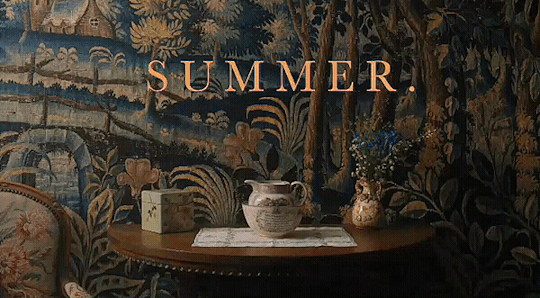
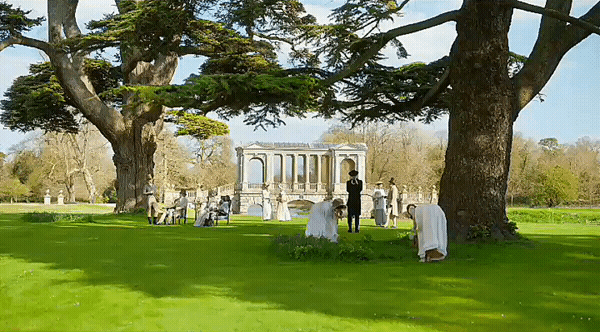
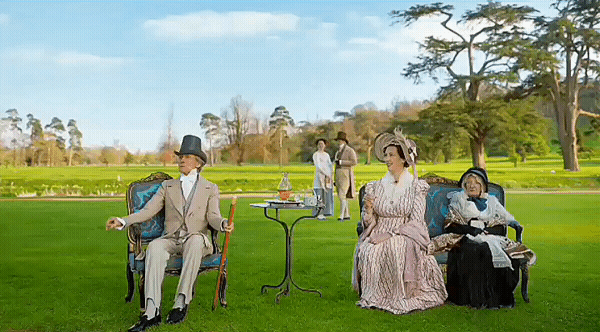
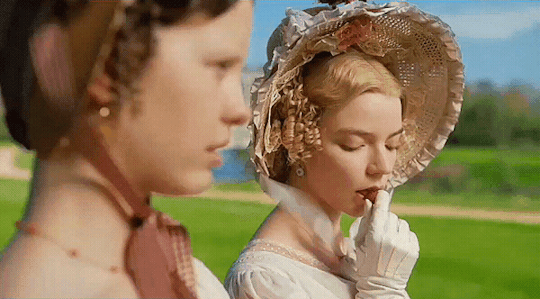
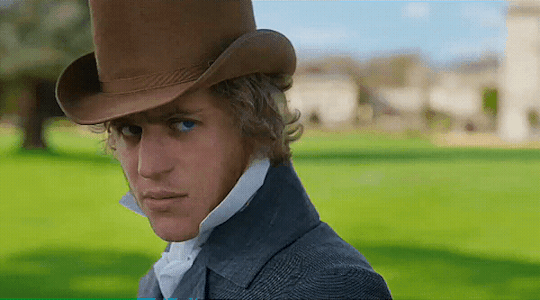
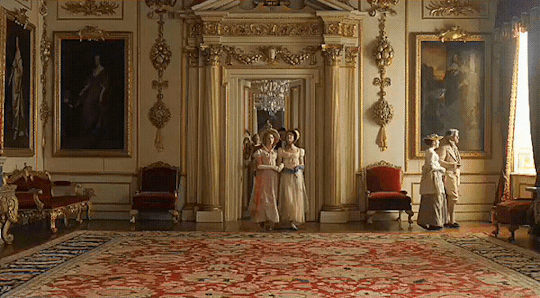




EMMA (2020)
dir. autumn de wilde
#emma 2020#jane austen#costume drama#period drama#perioddramaedit#perioddramagif#onlyperioddramas#perioddramasource#emma woodhouse#mr knightley#harriet smith#mr woodhouse#miss bates#jane fairfax#anya taylor joy#johnny flynn#mia goth#bill nighy#miranda hart#amber anderson#my gifs#mine
39 notes
·
View notes
Text
Okay, you want to know what really excites Austenites?
Here it is—the thing that .0000003% will understand—(but for that thin sliver, oooh boy hold your hats)
*this will sound like babel to 99% of ppl
The walks Jane escorted Mr. Dixon and Miss Campbell on? Yeah, Jane wasn't a third wheel. Frank Churchill was on those walks, too. It wasn't a threesome, but a foursome.
You may not understand this—you likely will not—but if you do, you cannot half comprehend it. It's an all or nothing proposition. Isn't it fucking amazing to reimagine those walks?? It won't solve world peace, but I consider that one of its benefits. ✌🏻 (I fucking did this, and from now on it will be taught differently in university classes. I did it! Me!)
#right you don't understand#you will never understand#I wish I could explain#yes it is obscure#jane austen#Jane Fairfax#emma
7 notes
·
View notes
Text
Ok so Logical is Marianne @ Willoughby and Lacy is Harriet @ Emma (I can also see Lacy being Emma @ Jane)
#we all agree right#guts olivia rodrigo#guts album#emma#emma woodhouse#jane austen#sense and sensibility#sense & sensibility#harriet smith#marianne dashwood#john willoughby#olivia rodrigo#jane fairfax
13 notes
·
View notes